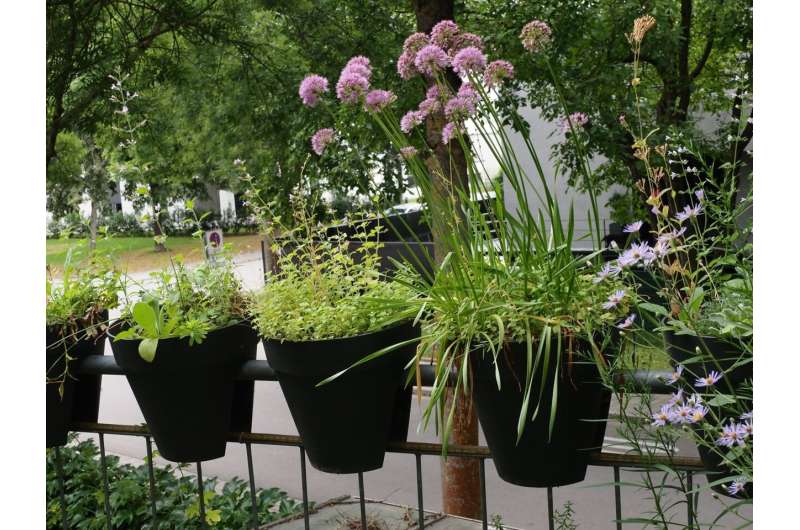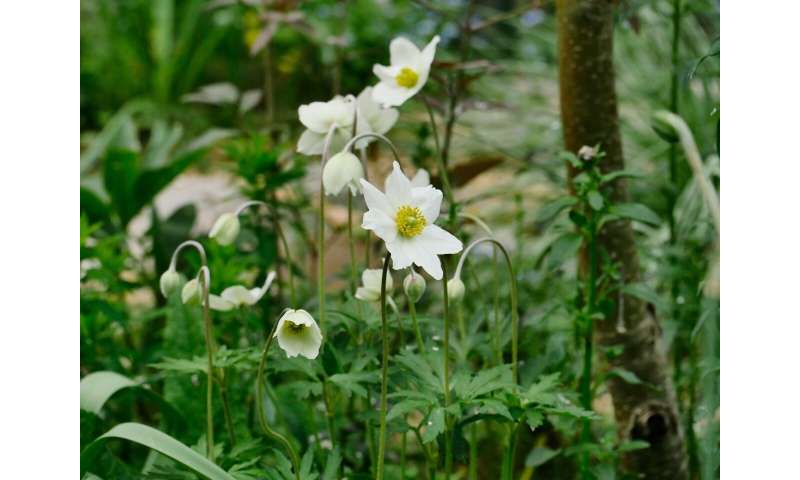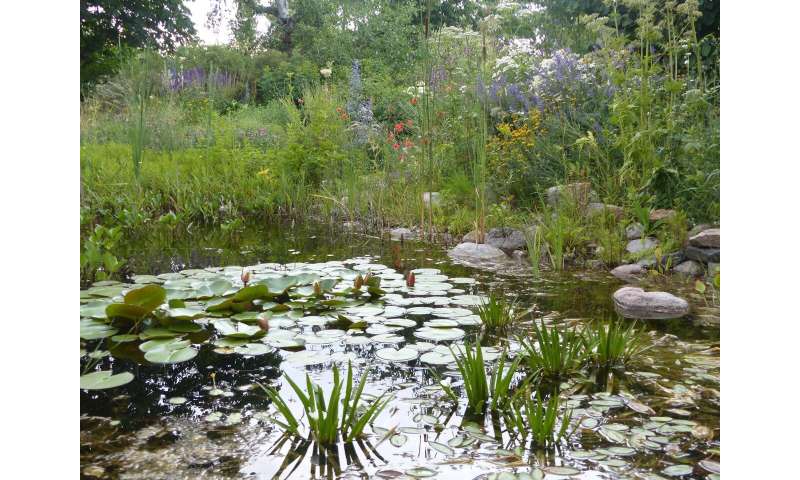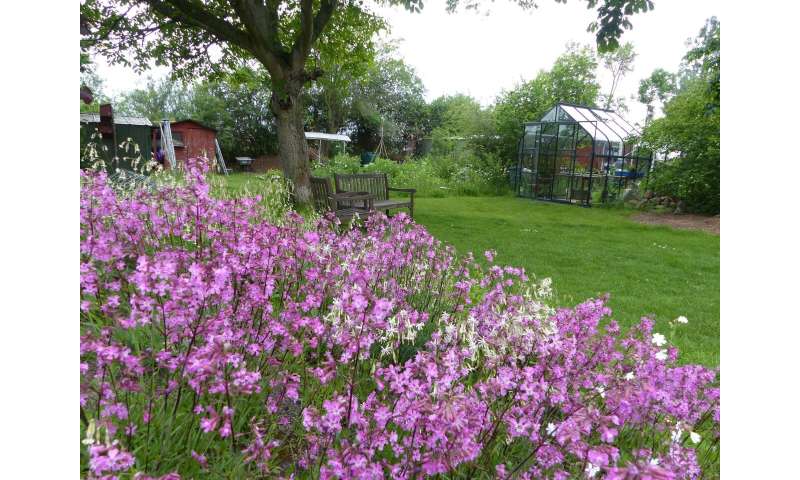This article has been reviewed according to Science X's editorial process and policies. Editors have highlighted the following attributes while ensuring the content's credibility:
fact-checked
peer-reviewed publication
trusted source
proofread
Reducing biodiversity loss: Gardens could be an Eden for vulnerable plants

Conservation gardening—the practice of planting declining native species in urban and rural green spaces—could help to address the increasing issue of plant biodiversity losses in Germany, reports a paper published in Scientific Reports.
The authors find that on average across Germany, 41% of plants (988 species) on the Red List of Threatened Species would suit conservation gardening, and that this approach could be expanded to boost biodiversity in other countries.
Although there is increasing public awareness of the importance of plant biodiversity in green spaces, there is a continuing strong preference for tidy gardens with ornamental plants. While local plants may also be grown, gardens tend to show low levels of diversity and plant choices are heavily influenced by availability and personal experience.
Ingmar Staude and colleagues obtained the most recent Red List data for endangered and vulnerable plants across all 16 German states. The authors included extinct in the wild species as conservation gardens can provide new habitats for these plants.
They then collated data from the NaturaDB database to categorize which of these threatened species were suitable for gardening. Finally, they used data from plant and seed producer websites to assess the commercial availability of listed species. Based on this data, the authors created a web app to provide lists of plants for gardeners and local authorities so that they could easily select suitable plants for conservation gardening.
-

Anemone sylvestris L. (snowdrop windflower), a species that has gone extinct in Saxony and is listed as vulnerable in Germany, showcases its early summer blooms. It serves as an ideal groundcover for partially shaded garden areas. Credit: Katrin Kaltofen and Reinhard Witt. -

Bustling wildlife around a pond. In the foreground is Stratiotes aloides L. (water pineapple), classified as vulnerable in Germany and extinct in Baden-Württemberg, thrives as a submerged aquatic native, making it an ideal choice for garden ponds. Credit: Christian With. -

A garden scene featuring a “carnation hill” adorned with Viscaria vulgaris Bernh. (clammy campion), classified as near threatened in Germany and Silene nutans L. (Nottingham catchfly), classified as near threatened in Saxony. Credit: Christian Wirth.
The number of Red List species ranged from 515 to 1,123 in different German states, with a median of 41% (988 species) of these being suitable for conservation gardening. In Hamburg, 53% (352 of 670) of threatened species could be grown, while in Bavaria only 29% (321 of 1,123 species) were suitable.
Of the total suitable species, 650 (66%) were commercially available for purchase. Additionally, the authors calculate that 45% of conservation gardening-suitable threatened plants prefer dry soils, compared to 27% of conventional garden plants.
These findings indicate that many threatened species are both suitable for gardening and are commercially available. The authors also suggest that, overall, these plants may also be more tolerant of drier conditions. Together, this presents a new approach to reducing biodiversity loss.
More information: Ingmar R. Staude, Putting conservation gardening into practice, Scientific Reports (2023). DOI: 10.1038/s41598-023-39432-8. www.nature.com/articles/s41598-023-39432-8
Journal information: Scientific Reports
Provided by Nature Publishing Group



















